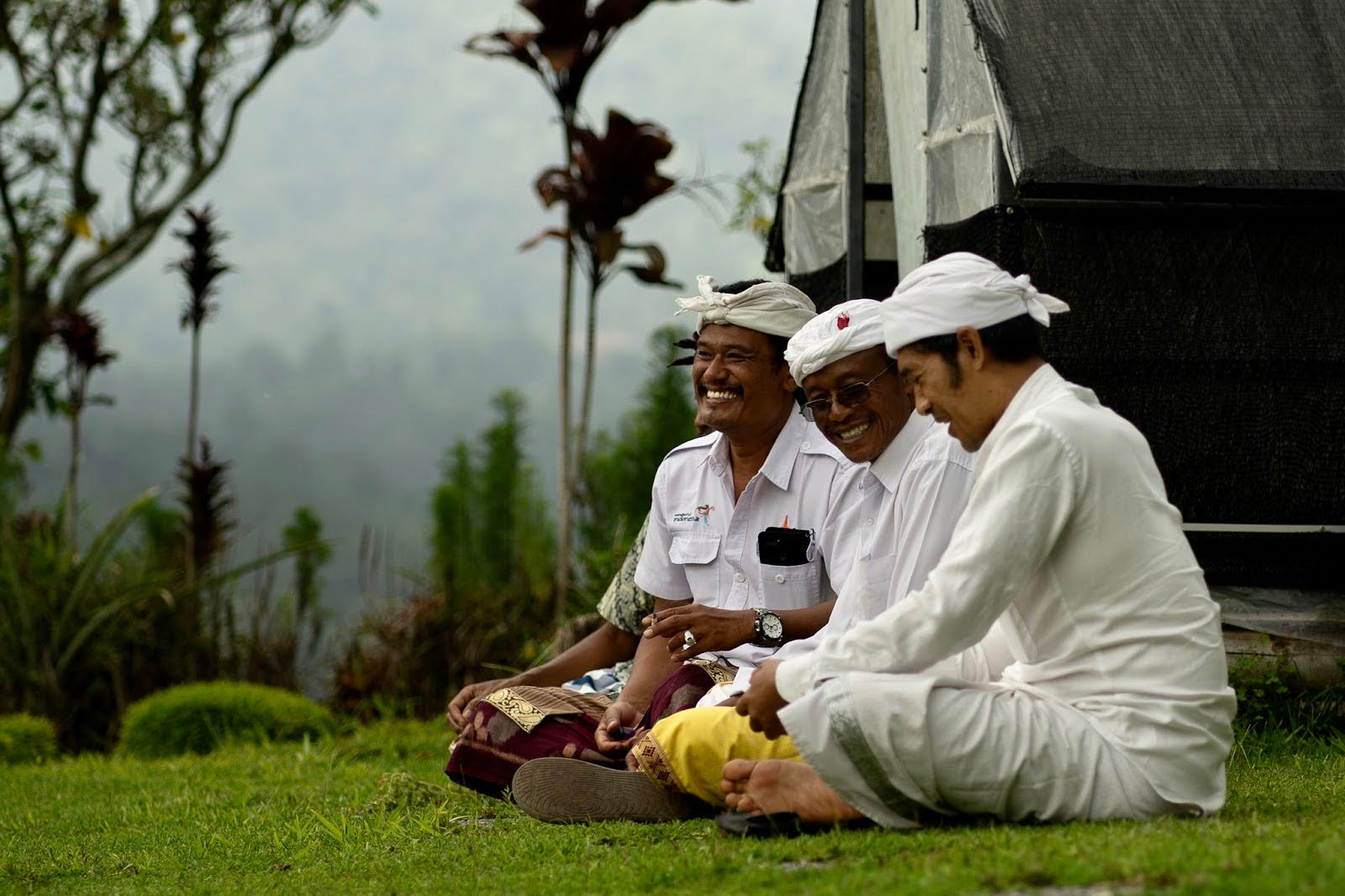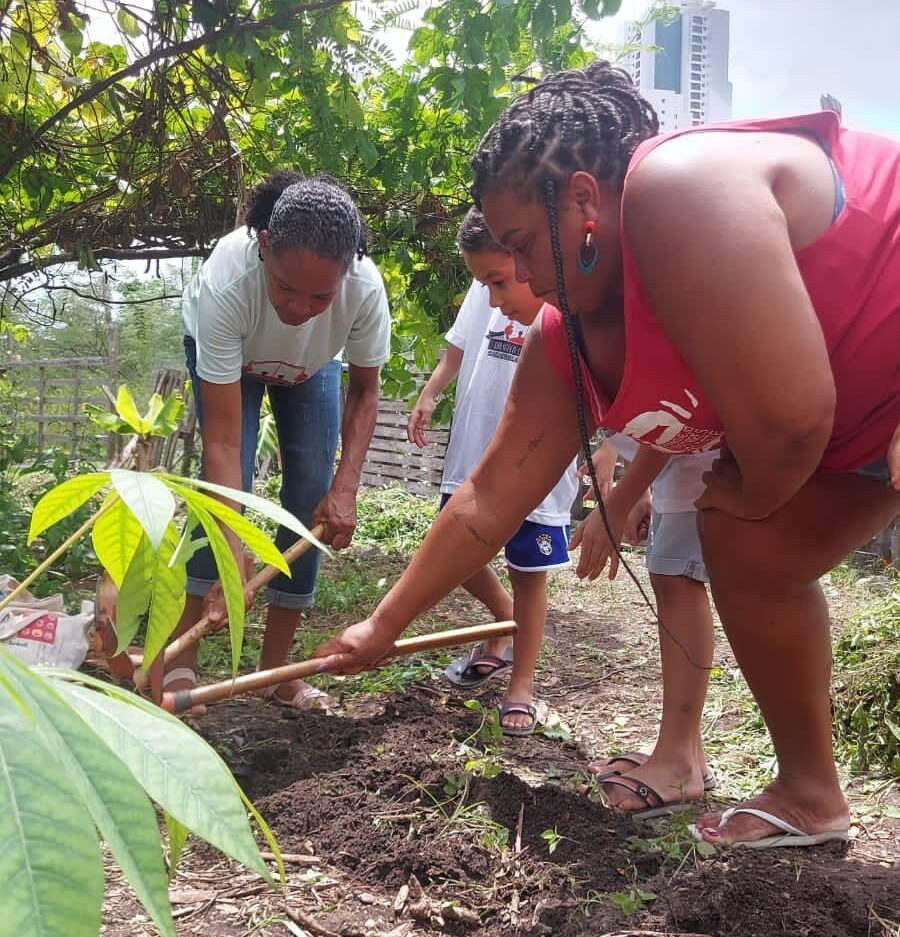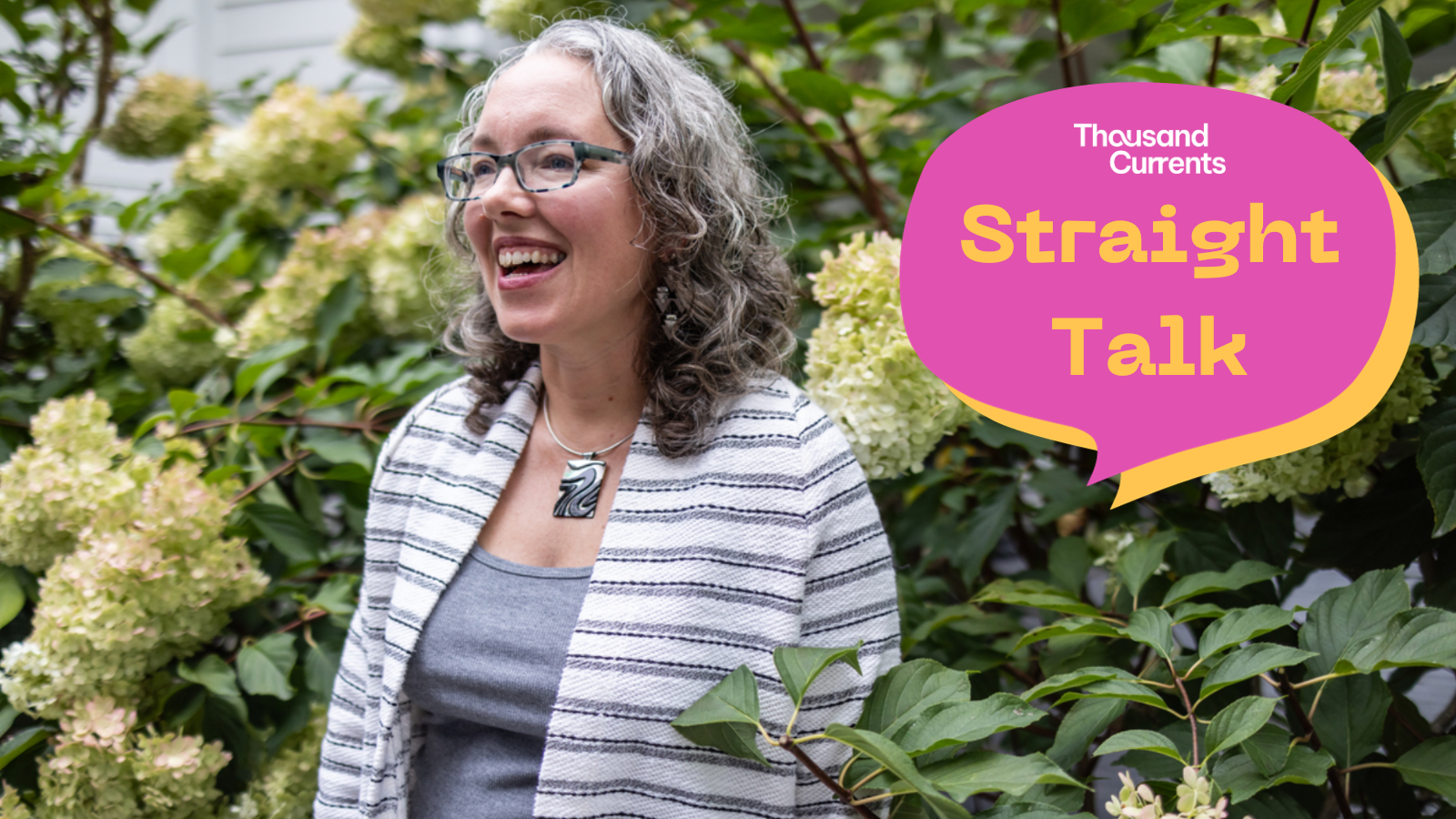Straight Talk: “The time to enact our solidarity with social movements is now”

Thousand Currents has supported grassroots groups in the Global South working to improve social, economic, and political conditions in their communities for nearly four decades. Our movement partners are shifting unjust and inequitable systems and building just realities rooted in feminist, Indigenous, Black and Afro-descent values, leadership, and practices.
We recognize we have a key role to play in influencing narratives in the philanthropic sector about movements, our thematic issue areas, and global solidarity. We continue to actively expand our ecosystem of grantmaking practices while also deepening and expanding our donor education and organizing work. We believe this is the time to double down on our commitment to resource grassroots movements in the Global South working towards food, climate, and economic justice. So, how are we going to do that, and what do we need to get there?
These questions led to a series of conversations with leaders at Thousand Currents who hold key areas of the organization’s work. Welcome to Straight Talk, an interview series with members of the senior management team, where we explore and reflect on the current state of philanthropy, their hopes and lessons from engaging with the donor landscape, and some honest leadership reflections on what it means to advocate for more resources and recognition of grassroots organizing. On the heels of our 10-year strategic vision, this recurring series feeds into owning our crucial role in shifting narratives.
This is the first of six interviews: a rendezvous with our Director of Philanthropic Partnerships, Rajiv Khanna. As part of the Senior Management Team, Rajiv informs and guides Thousand Currents’ overall strategy and planning, ensuring collaboration and interconnectedness across all our programs. In this role, Rajiv has been working closely with individual and institutional donors and making a relentless case for funding grassroots movements. In this interview, he talks about social change and how the possibility of transformation energizes him to ask for more money for social movements. Read on.

Let’s start at the very beginning. Tell me why it is important to redistribute resources to the Global South.
Because of wealth extraction. The capitalist project depends upon extraction of resources from the Global South for its own survival. We’ve seen the extraction happen over centuries in various ways through colonization, imperialism, and now through neoliberalism. This kind of excess wealth accumulation and capitalism is actually damaging to democracy.
Redistribution of resources is also important because it is linked to a sense of justice. That the wealth needs to be redistributed, and it can be used to repair. There’s power in redistribution, there’s a lot of good things that can happen with repairing, and money is one way to repair. There are other ways to do reparations, but money is an important way to do it. Think of money as energy. Hoarding it doesn’t make any difference, and you must release it to make any change happen. And we know that enormous change can happen and is possible if resources are moved in a good way, in alignment with the values and missions of social movements. So the opportunity to also redistribute power along with redistributing wealth is important.
Speaking of social change, do you ever feel demotivated, given that there are a million barriers and change is a long drawn process?
I think philanthropy is a deeply frustrating field. People in positions of power, not just in philanthropy but anywhere, change slowly. The biggest frustration, of course, comes from the fact that philanthropy is still continuing. Despite all the things that we try to do, you still have miniscule amounts of money moving globally; small percentages, going to local organizations, smaller percentages going for general support. It’s really infuriating to see that only 2% of our global giving goes to climate crisis work; less than 1% of that goes to Indigenous people and women. When you see large philanthropies and billionaires operate the way that they do, not open to change, not open to influence, it is deeply frustrating. The ways in which they think about their image as they move their dollars, they use their money as a way to conduct a social engineering experiment. Look at the tax frauds happening through philanthropy within the US. There are more than a trillion dollars invested in foundation assets in the United States of all foundation assets combined. That money is doing nothing but making more money for itself, leading to wealth accumulation and exacerbating the problem. There’s also the racial dynamics and gender dynamics that operate within this sector that are deeply disappointing.
Ultimately, we don’t want philanthropy to exist. At the 35th anniversary gathering of Thousand Currents a couple years ago, one of the questions we were discussing was what do we want for this organization in the next 35 years? And I haven’t seen a more enthusiastic bunch of staffers who are ready to kill their own organization, in the best way possible. That is, in 35 years, we don’t want this organization to exist, and we want to just dismantle the system it comes from and the system that gave birth to it.
So, yes, philanthropy is deeply challenging and rigid. People change slowly. But what gives me hope, and what I’ve learned from our movement partners, is that change is the only constant. Everything changes. We learned that from Octavia Butler: “All that you touch you change. All that you change changes you. The only lasting truth is change.”
Tell me more about this hope. How and where have Thousand Currents’ movement partners influenced you? What have you learned from them?
That transformation is possible only in relationships. Our movement partners engage with corporations that harm them, they engage with governments that are out for their lives, the women engage with men who are out to kill them. Yet they do it because they know that change is only possible in relationships. That gives me hope. At our flagship Academy, we welcome anyone and everyone with wealth and believe in engaging with them and making them understand the benefits and beauty of trust-based philanthropy.
The other thing that I’ve learned from our movement partners is to really believe in human transformation. They believe and trust that human beings can change, and so they really invest their efforts in that. They have an indefatigable belief in human transformation. And that’s really, really inspiring to see. This is long-term work. No activist reformer, no freedom fighter, no revolutionary went to the grave saying my work on this earth is complete. By definition, the work is incomplete, and also messy.
Whenever there’s been moments of feeling cynical or jaded or just let down, we just need to interact with our movement partners. The perspective just shifts after that, and there’s hope again.
What do you think needs to change in philanthropy? And how does Thousand Currents fit in?
The short answer is: we just need to move a lot more money. So much more! Privately endowed foundations need to give much more than the required 5%. Even though some stretch that 7-8 %, there is still a huge chunk of money just sitting there in extractive investments making more money for itself and overriding any good. The world is burning right now. This is a critical decade. There are multiple crises around us. What are we holding onto our resources for? I’d like to see a lot more money move very quickly to the groups on the ground. Because of the influence of big billionaires, philanthropy is also such a neoliberal, market-oriented space now. And that’s been happening for the last 30 years. Resistance has been privatized. A lot of philanthropy believes that governments and markets are the only levers of changes in society. Philanthropy needs to pay attention to the third lever of change in society, which is people-powered social movements all over the world that have progressively brought about so much change for us. I’d like to see that sector be recognized and uplifted. Movement solutions in food, climate, and economy needs to be centered, legitimized, and mainstreamed. I’d like for philanthropy to rethink assumptions about where change solutions come from, who the experts are, and then direct more and more long-term, unrestricted money towards those groups. As Ash-Lee Woodard Henderson has said, “we have to fund them like we want them to win”.
This is about taking the metrics of history into account and doing hard core funding. Billions of dollars need to move, and they need to move now. That’s the short-term vision for philanthropy, and we [Thousand Currents] have a role to play in that–through donor education, donor influence, peer organizing. The most important thing we can do is model: model the behavior and practices that we want philanthropy to adopt. We cannot be sitting on hordes of money.
In the next generation, philanthropy needs to be dismantled. The capitalist system has changed, and there’s a new social contract that’s happening between citizens and the state because of strong, participatory democracies. That’s the long-term vision we should all be working towards. We can be catalytic but I don’t think things will happen because of philanthropy. We can be contributing to change but the change cannot be attributed to us. What we can do is create an enabling environment as we remain as key members of the larger philanthropic ecosystem.
We also don’t think long-term enough. So, how can we think about what are the changes we want to make in the next 30 years, and what can we do in the next 10 years to make that happen?
As told to Deepa Ranganathan
Part 1 of a leadership interview series. Check out all previous interviews by clicking here.
Related Stories



